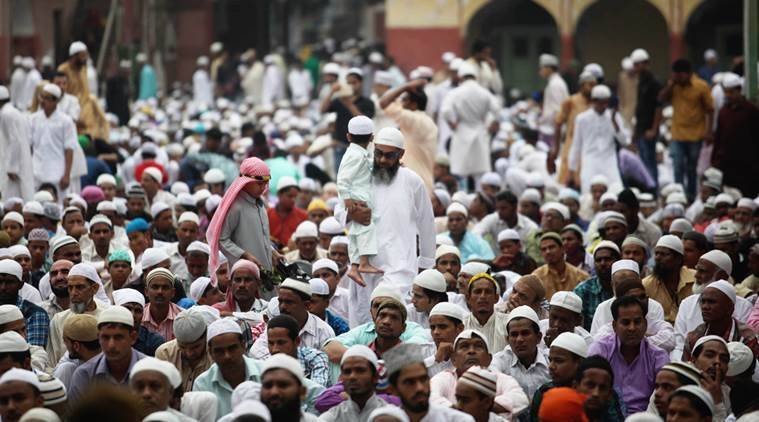|
Listen to article
Getting your Trinity Audio player ready...
|

The conflict in West Asia, Afghanistan and North Africa has forced Islamic nations to rethink support to various radical religious organisations that are responsible for instability in many countries including Syria, Iraq, Yemen, Afghanistan, tribal regions of Pakistan and Libya. Recently, Saudi Arabia has banned the Tablighi Jamaat, a puritanical movement of Indian origin, with the Saudi Minister for Islamic Affairs, Dr Abdullatif Al-Alsheikh, issuing a warning that the Tablighi Jamaat, is false and dangerous, and “a gateway to terrorism”.
Tablighi Jamaat leaders have called the ban by Saudi Arabia unfair and an unproven allegation. There is however no gainsaying the fact that radicalisation can threaten the stability of a nation. Saudi Arabia is wary of the organisation because they fear that it could radicalise youth and create disaffection against the state. Contrary to the claims of Tablighi Jamaat, an article published by the Jamestown Foundation in 2013 says that the Tablighi Jamaat has “traditionally eschewed politics” but has much in common with the Wahabi style of Islam. While some followers of terrorist groups have attended meetings with the group and some have carried out terrorist attacks, there are as yet, no established linkages between Tablighi Jamaat and terror organisation operating in the region or in the Middle East and North Africa (MENA).
Lauren Frayer says that Deoband is the place where the Taliban’s ideology was founded. It’s not Afghanistan; nor is it the Middle East. It’s not even in a Muslim-majority country. It’s a small town in India about 100 miles north of the capital, New Delhi. Yet, the ideological fountainhead of the Taliban movement comes from Deoband, despite the fact that 99% of Taliban have neither visited India nor been educated in Madrasas operated by Deoband in India. However, the Taliban call themselves Deobandi, with many of the cadre having studied in Deobandi schools in Pakistan. One spokesman for the movement has also declared that “Every Afghan is a Deobandi.
Deoband has often distanced itself from all forms of violent extremism and denied any linkages with the Taliban or any other radical extremist organisation. Ban by Saudi Arabia is in light of the fact that no country wants their youth to destroy the economic and cultural heritage of their country the way the Taliban destroyed Afghanistan and ISIS destroyed Syria and Iraq.
It is not only religious fanatic organisations that are a threat to states. Certain individuals like Zakir Naik pose an equally significant threat in their ability to radicalise youth through their hateful preaching. Many detained al Qaeda activists have reportedly told authorities that Dr Zakir Naik had been a huge influence on them. He has been living a self-exiled life in Malaysia after being blamed for “influencing” the Dhaka terror attackers (1 July 2016). It was Bangladesh that sought his arrest and issued a ban on his activities. He is now being sought by India and Bangladesh. He is also banned from entering many countries including the UK.
The ruling class in Saudi Arabia seems to have realised that the country has to be reformed from above to avoid revolution from below. Saudi Arabia at this stage does not want to be tied down by fanatic religious organisations that are against modernisation and liberalisation. The problem, as determined by the Saudis is the unregulated preaching of Islam that may be against the idea of the state. Many progressive Muslim countries are today weary of hard line religious organisations and thus these nations feel the need to regulate religious discourse to prevent radicalisation.
The study by the United States Institute of Peace highlighting the role of religion as a potential driver of violent extremism is significant, but has gone on to state that religion usually interacts with a wide range of other factors and that the causality of radicalisation is not always linear. Thus, it is not easy to identify who will get influenced or radicalised and who will remain unaffected. Sri Lankan terror strikes were executed by a family that killed more than 300 people on Easter. It later came to light that they were members of National Thowheeth Jama’ath’ which swore allegiance to ISIS. It is not that every individual who attends a religious institution is radicalised, but even if a minuscule number is sufficient to create turmoil. Conflict in Syria produced a record number of jihadist foreign fighters—more than Afghanistan, Somalia, Iraq after 2003 and other such conflicts combined. In the backdrop of the above, the state must regulate what can be preached and what is being taught in the religious seminaries.
The subcontinent has since the early 19th century hatched multiple religious sects that are now in the eye of storm. We may blame Dr Zakir Naik for influencing youth to join terror organisations but even the state is culpable in having allowed him to continue preaching hate and intolerance. It is the duty of a state to eliminate such preaching in places of worship and to that extent, some form of regulation is desirable. Many countries including Saudi Arabia have adopted a system where religious leaders are given a script approved by the state for their weekly religious discourse. After all, religious leaders are integral members of civil society and key contributors to public and political discourse and so such engagement is warranted.[1] Such regulation must be handled with sensitivity, but it needs to be done, especially in the Indian context. In any event, India must regulate the entry of foreign citizens who come in order to carry out religious proselytisation, as this has implications for national security concerns.
[1] Peter, N 7.






Add comment